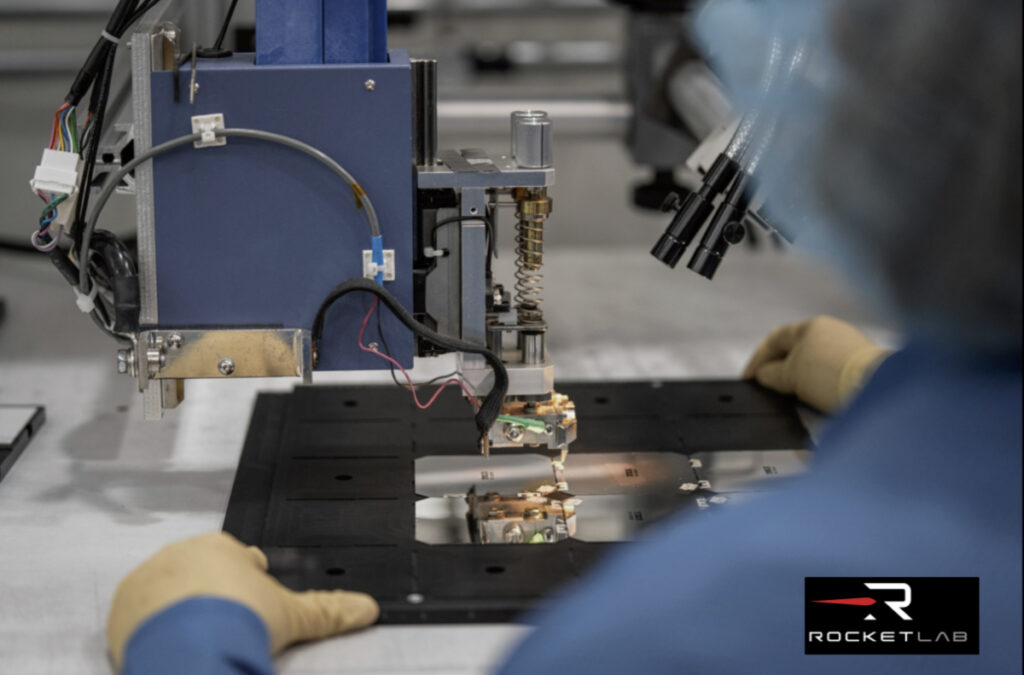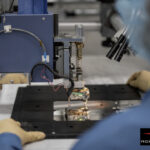
Rocket Lab Corporation (Nasdaq: RKLB) is boosting its U.S. investments to expand semiconductor manufacturing capacity and provide supply chain security for space-grade solar cells and electro-optical sensors for national security space missions.
The Trump Administration will support these investments with a $23.9 million award through the Department of Commerce, part of the CHIPS and Science Act that ensures U.S. leadership in space-grade semiconductor technology.
In a strategic response to the increasing demand for a robust domestic supply chain of space-grade solar cells and electro-optical sensors for spacecrafts and satellites, Rocket Lab’s capital investments over the next five years are expected to strengthen the Company’s market position as a leading satellite manufacturer, components supplier, and end-to-end mission provider for commercial and national security space missions.
Rocket Lab is one of only two companies in the United States that specialize in the production of high efficiency, radiation hardened, space-grade compound semiconductors.
Rocket Lab’s investment builds upon the Company’s existing U.S. expansion plans for its space systems products alongside a $275 million acquisition of Geost, an electro-optical payload provider based in Tucson, Arizona and northern Virginia. Combined, these multi-hundred million-dollar investments will strengthen America’s semiconductor industrial base and invigorate industry innovation for U.S. commercial and national security satellite missions.
Through these investments, Rocket Lab expects to:
- Double production capacity of compound semiconductors and space-grade solar cells, from 20,000 wafers to nearly 35,000 wafers per month
- Provide U.S. spacecraft manufacturers and the wider aerospace industry with access to domestically produced, advanced semiconductor and electro-optical technologies
- Expand its ability to rapidly deliver integrated spacecraft systems purpose-built for U.S. national security
- Drive economic growth in California, Colorado, Maryland, New Mexico, Mississippi, Arizona and northern Virginia, as it expands its U.S. based headcount to more than 2,000 employees
Rocket Lab’s solar cells have powered industry-defining space missions including the James Webb Space Telescope, NASA’s Artemis lunar explorations, the Ingenuity Mars Helicopter, and the Mars Insight Lander, and more – underscoring the Company’s pivotal role in space industry innovation and U.S. supply chain security.
Rocket Lab Vice President of Space Systems, Brad Clevenger, said, “Our leadership in American-made semiconductor technologies is built upon more than 25 years of engineering and manufacturing excellence in New Mexico. These latest investments will expand that production capacity, strengthen supply chains, create new jobs, and develop economic opportunities across the states where we operate – and are additional examples of Rocket Lab’s commitment to delivering reliable and cost-effective solutions at scale to the space industry.”
This administration is taking historic actions to encourage companies like Rocket Lab to invest in American ingenuity and innovation,” said U.S. Secretary of Commerce Howard Lutnick. “Rocket Lab’s investment will help cement our dominance in space while expanding opportunities for workers across the country.”

